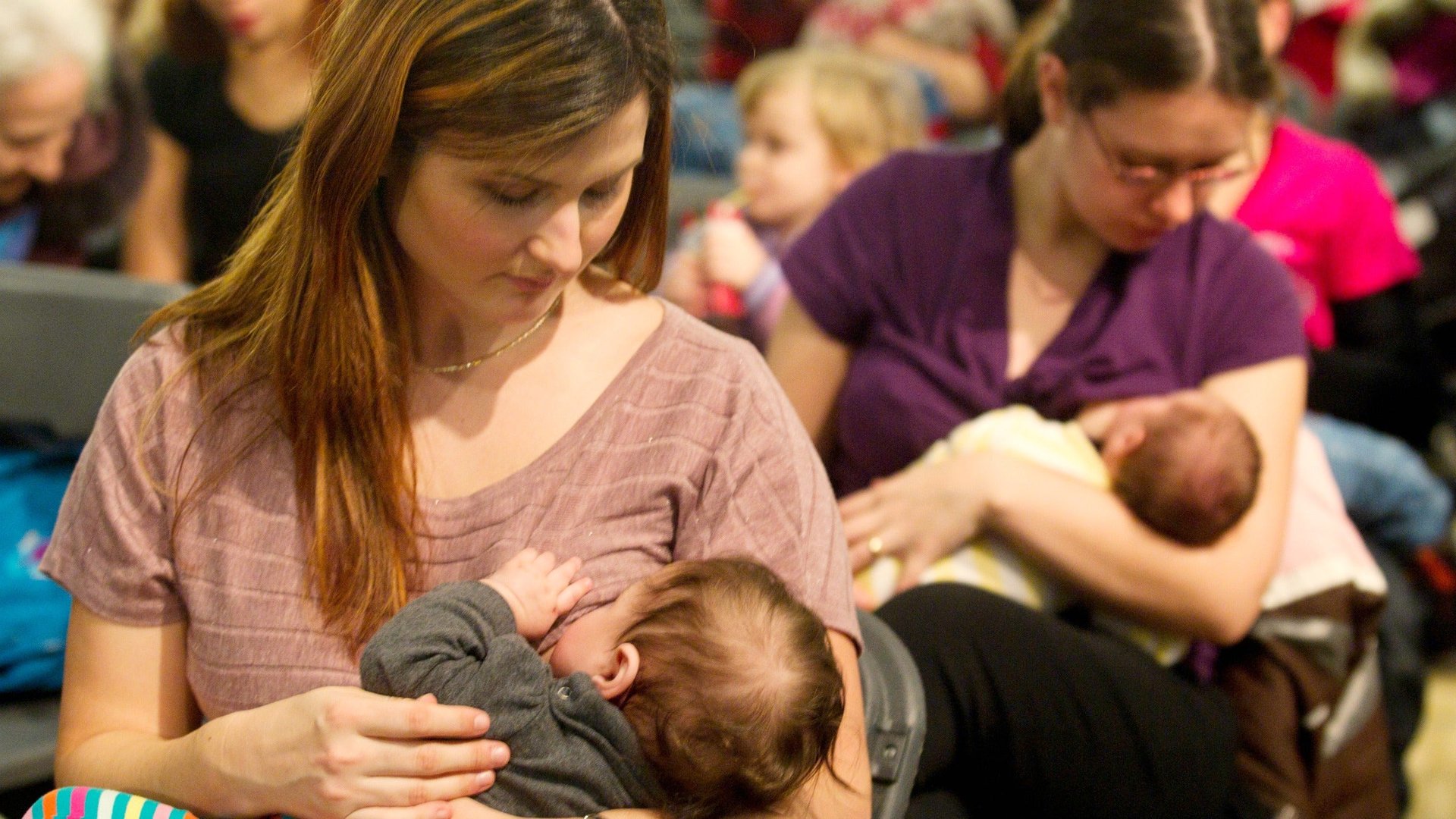Paying women to breastfeed won’t work
After cutting its breastfeeding awareness program in 2011, the UK now has one of the worst breastfeeding rates in the world. The government is hoping to lure new mothers to breastfeed their babies for a full six months with offers of £200 ($319) in shopping vouchers. The declining rates are even worse in low-income areas, where there’s a stigma against breastfeeding.


After cutting its breastfeeding awareness program in 2011, the UK now has one of the worst breastfeeding rates in the world. The government is hoping to lure new mothers to breastfeed their babies for a full six months with offers of £200 ($319) in shopping vouchers. The declining rates are even worse in low-income areas, where there’s a stigma against breastfeeding.
Despite widespread consensus that breast milk, full of nutrients and antibodies, also aids in brain development and reduces the risk of breast and ovarian cancer in mothers, the breastfeeding rate is at the lowest it’s been in the UK since the National Health Service started tracking it in 2004. Formula-fed babies have higher risks of contracting certain diseases, developing asthma, suffering from diabetes or becoming obese later in life. That’s why moderate increases in breastfeeding could save the NHS £40 million ($63.7 million) each year.
In parts of the UK, the National Health Service already offers vouchers to smokers who quit—which doubles the success rate—and cash handouts to people who lose weight. In Germany, social insurance payments are lowered if people attend smoking cessation classes.
When health issues are put in a monetary context, people realize the financial implications of their health habits and are more likely to stick to an exercise regime, lose weight or quit smoking. Financial incentives can also give people that initial prompt to change their behavior and lead to habit formation that continues even after the payments stop.
While breastfeeding is a health issue, it’s different from smoking and obesity in that it doesn’t pose a direct health risk. The choice to breastfeed is often more deeply embedded in cultural and generational customs. Incentives tend to be more effective when the person wants to achieve the result anyway.
Critics of the UK breastfeeding study have also pointed out that the incentives should be in cash, which can also pay for services and utilities, rather than vouchers, which only buy limited items.
But a 2001 study in Italy found that attitudes toward breastfeeding can be changed through negative financial incentives. When monetary penalties were given to local health authorities that failed to achieve their breastfeeding targets, the rate of exclusive breastfeeding “increased significantly” while breastfeeding alongside other forms of feeding declined.